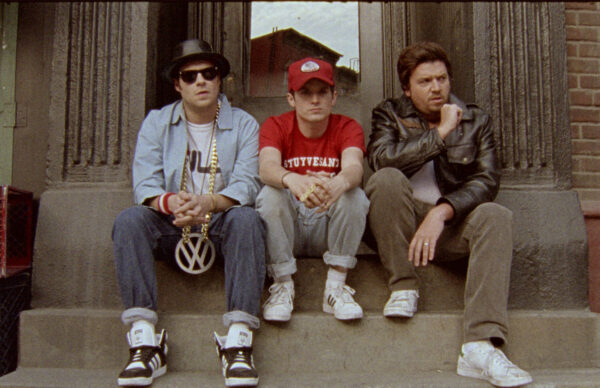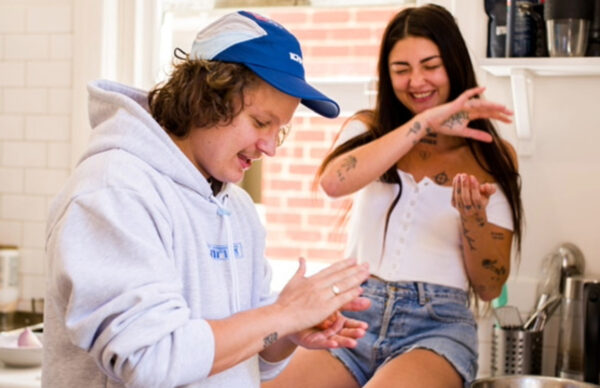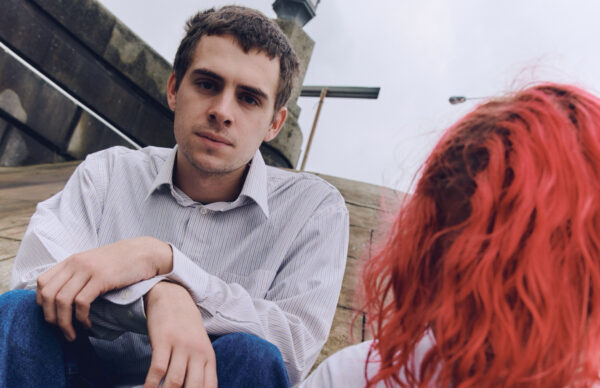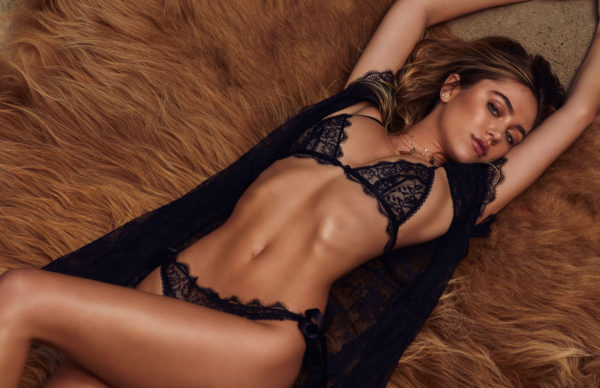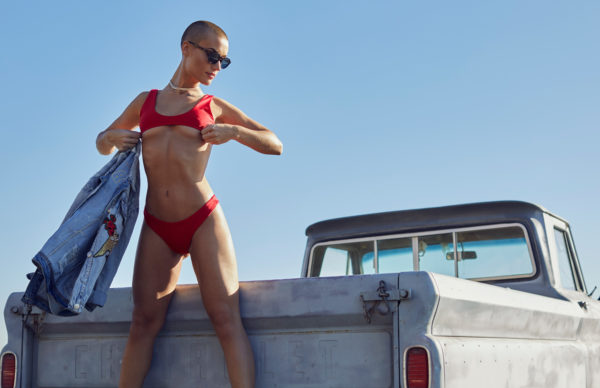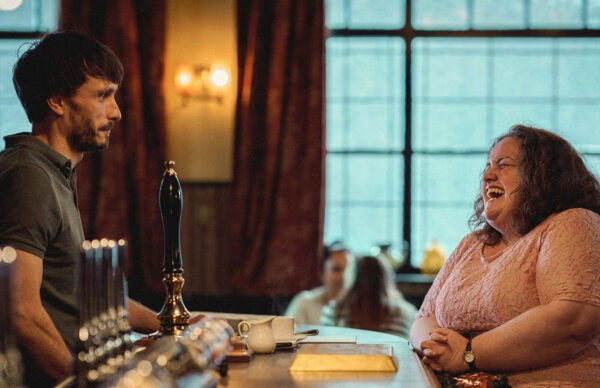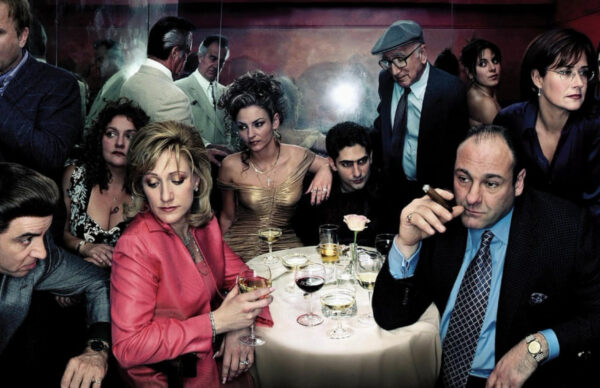All images via Warner Bros. //
Amid a tumultuous press rollout ahead of a Venice premiere, reviewers met Don’t Worry Darling with a resounding ‘meh’..
Earlier this week, the Harry Styles-led psychological thriller Don’t Worry Darling arrived at Venice Film Festival on a tidal wave of toxic buzz. The much-anticipated movie, helmed by actor-director Olivia Wilde, has been plagued by rumoured behind-the-scenes dramas since it was first announced in 2019, so plentiful they warrant their own separate documentary (more on that later).
An extramarital love triangle, fallouts with the director, snubs during the press tour and a shock firing of a former lead actor have remained the most persistent rumours surrounding Don’t Worry Darling, culminating yesterday in a supposed exchange in which Styles appears to spit on co-star Chris Pine during the film’s Venice debut.
https://www.youtube.com/watch?v=FgmnKsED-jU
But aside from A-listers dribbling on each other (the internet is still debating the validity of that claim), audiences also got from Don’t Worry Darling’s Venice premiere a swathe of early reviews, most easily distilled into a resounding: ‘meh’. Reviews for the film — which follows a ‘50s housewife (played by Florence Pugh) as she uncovers the chilling underbelly of the corporation her husband (Styles) works for — have been decidedly mixed. Here’s the key takeaways from early reviews for Don’t Worry Darling, ahead of its Australian theatrical release on September 30.
Did Harry Styles just spit on Chris Pine?? #DontWorryDarling pic.twitter.com/V79mMi8CQs
— Matt Ramos (@therealsupes) September 6, 2022
Off-screen drama is more captivating than the film itself.
Not even film critics are immune to the tabloid fodder that has engulfed Don’t Worry Darling. From Wilde’s divorce from actor Jason Sudekis (reportedly to pursue a relationship with Styles) to former lead actor Shia LaBeouf’s shock exit — or termination, depending on who you believe — from the project, much of Don’t Worry Darling’s press coverage has been explosive.

But critics can’t say the same about the film itself. Whatever titillation audiences found in People Magazine won’t be found in Don’t Worry Darling, with reviewers’ main criticism being a lacklustre script. The Guardian wrote that the film does a “good job of building the world” in its first half, but later “go[es] down a rabbit hole after something else”. The LA Times shared a similar view, writing that Darling is “not half as disturbing as it wants to be,” while The Hollywood Reporter deemed it “high-concept, low-satisfaction.”
Visually appealing, but not much beneath it.
What the film “lacks in imagination” (as per Vulture), it makes up for in cinematography. The Wrap praised the film’s “look”, and BBC applauded the pitch-perfect ‘50s aesthetic which “brings a plastic unreality and white heat to the screen.” Elsewhere, The Telegraph said the film looked “gorgeous,” and IndieWire wrote that it “offers stunning craft work” and “a wonderfully immersive quality.”

But for all its beauty, the sanitised cinematography was largely agreed to reflect the film’s script itself, with Esquire writing that Darling’s central message is “basic and expressed in such an exhaustingly overdone way.” The film’s cinematography, much like it’s story, is “surface-level” (as per Collider).
Borrows heavily from other, better films.
Most reviews cite the plethora of films that Darling borrows from, agreeing that these influences largely work in the film’s first half. Screendaily found the references to previous movies like Stepford Wives, Pleasantville and Suburbicon to be “part of the pleasure” when uncovering the film’s mystery, but ultimately conceded that all those movies “do a better job of relaying their message.”

Aside from Darling’s “unfavourable comparisons to a whole swath of different bygone films”, one throughline in reviews has been to name all but one movie that Darling borrows from. Apparently, to cite the one film that’s most influential would “spoil some of the plot’s surprises” (Vulture), and Darling “makes no secret of hiding” (Vulture) what that film is.
Styles VS. Pugh
Earlier this year, Styles was uniformly roasted when a promo clip of his slapdash accent in the film was released. But according to critics, Styles’ accent — which sounds like an Irishman wearing a snorkel — is purposefully vague in line with the plot. Reviews of Styles’ performance weren’t exactly glowing, though, with critics using descriptors like “competent” (IndieWire), “charming but blank” (Total Film) and “adequate.” (The Guardian).
https://www.youtube.com/watch?v=qZpxcBUbivw
Pugh, on the other hand, was unanimously deemed the film’s saving grace. Total Film applauded her “accomplished, full-bodied performance”, praising her ability to “do so much with so little.” Screendaily agreed, writing that the “screenplay isn’t sharp or shattering enough to give [Pugh’s performance] the resonance it deserves.”
Twists, plot holes and losing steam.
While critics enjoyed the initial set-up of Darling — particularly praising some of the early, scarier scenes — most agreed that the film lost steam in the final act, culminating in “a twist [that] is not at twist at all” (IndieWire). Audiences’ knowledge of the movies that came before Darling mean they’re aware of where it’s headed, but will ultimately be “kept waiting for the movie to surprise [them]” (Vulture).

In it’s second half, Darling reportedly “crumbles into baffling storytelling choices”, particularly as the early clues lead to “predictable discoveries” (Screendaily). When the big reveal is ultimately discovered, The Guardian wrote that “it raises far more questions than it answers”, and reveals “plot-holes and problems in a fantastically silly twist.” Whatever credit it gained in the beginning, critics largely agree that Darling “ends in the wrong place” (Total Film).

